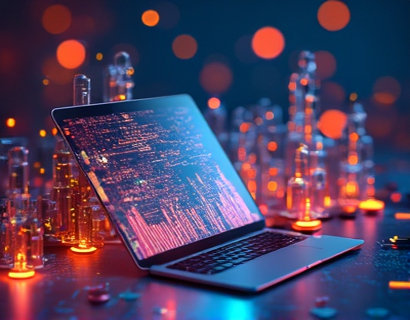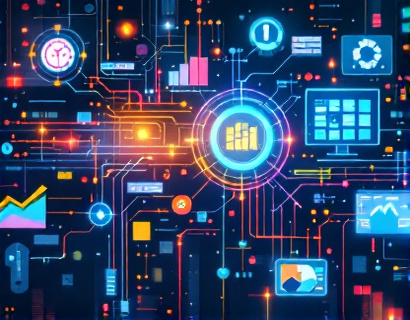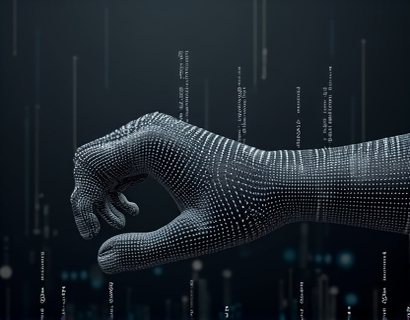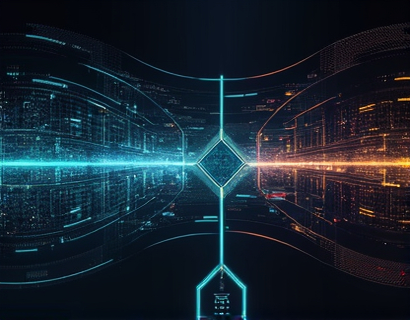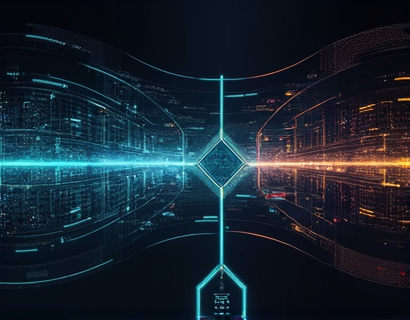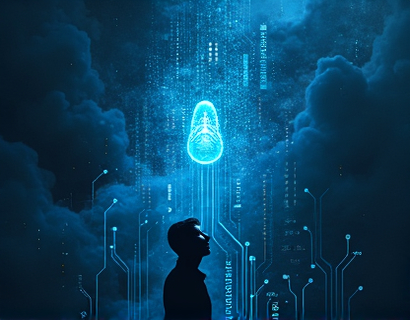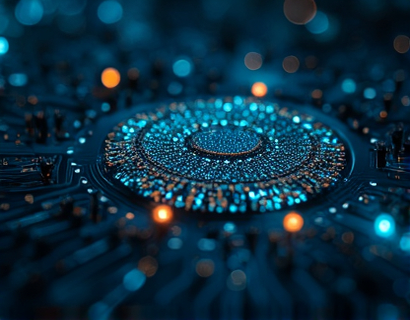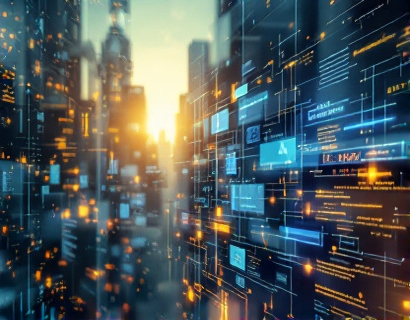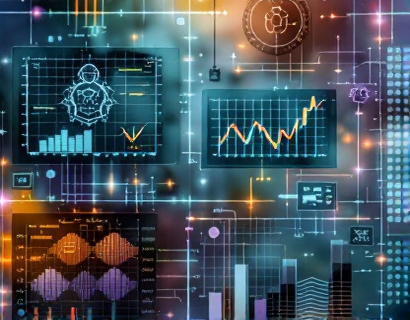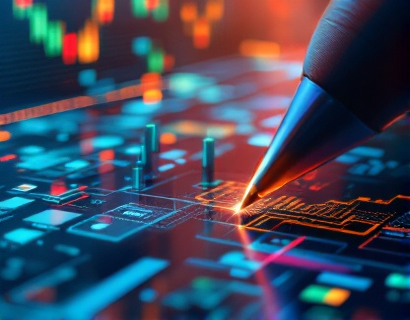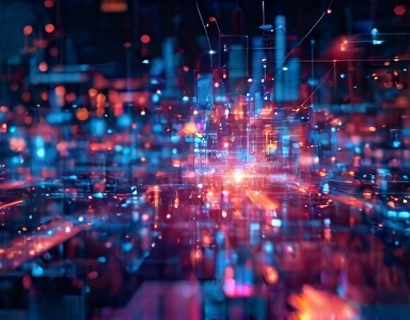Decentralized Innovation: Leveraging AI and Crypto for Enhanced Digital Solutions
The intersection of artificial intelligence (AI) and cryptocurrency is giving rise to a new era of decentralized innovation, fundamentally transforming the digital landscape. This article delves into the synergy between these two powerful technologies, exploring how they are redefining digital solutions and enhancing user experiences. For tech enthusiasts and professionals, this piece offers a comprehensive look at the transformative impact of AI and blockchain, providing valuable insights for navigating the evolving landscape of decentralized applications and the digital economy.
Understanding Decentralized Technologies
Decentralized technologies, often associated with blockchain, represent a paradigm shift from traditional centralized systems. In a decentralized system, no single entity has control over the entire network. Instead, tasks and data are distributed across a network of nodes, ensuring transparency, security, and resilience. This decentralization is achieved through cryptographic techniques and consensus mechanisms, which validate transactions and maintain the integrity of the network.
Blockchain, the foundational technology behind cryptocurrencies like Bitcoin and Ethereum, is a distributed ledger that records transactions across multiple computers. Each block in the chain contains a cryptographic hash of the previous block, a timestamp, and transaction data. This structure makes it nearly impossible to alter any part of the chain without altering all subsequent blocks, which requires consensus from the majority of the network.
AI in Decentralized Systems
The integration of AI into decentralized systems brings a new level of intelligence and automation. AI algorithms can process vast amounts of data, identify patterns, and make predictions, all of which can be leveraged within a decentralized framework. For instance, AI can enhance the efficiency of smart contracts by automating complex decision-making processes, reducing the need for intermediaries and lowering transaction costs.
One of the key areas where AI and decentralization intersect is in the development of decentralized artificial intelligence (DAI). DAI platforms allow for the creation and deployment of AI models without central control. These models can be trained on decentralized data sources, ensuring privacy and security. The decentralized nature of DAI also promotes fairness and transparency, as the algorithms are open to scrutiny and can be audited by anyone in the network.
Enhanced User Experiences through AI and Crypto
The combination of AI and cryptocurrency is not only about technological innovation but also about enhancing user experiences. Decentralized applications (dApps) powered by AI can offer more personalized and intuitive services. For example, AI-driven recommendation systems can suggest products or content based on user preferences and behavior, all while maintaining user privacy through decentralized data storage.
Moreover, AI can improve the user interface and experience of dApps. Natural language processing (NLP) and machine learning (ML) can be used to create more interactive and user-friendly interfaces. Chatbots and virtual assistants, driven by AI, can provide 24/7 customer support, answering queries and guiding users through complex processes seamlessly.
Security and Privacy in Decentralized AI
Security and privacy are paramount in the realm of AI and cryptocurrency. Decentralized systems inherently offer stronger security due to their distributed nature, making them less vulnerable to single points of failure and cyber attacks. AI can further enhance security by detecting and mitigating threats in real-time. For instance, AI-powered anomaly detection can identify unusual patterns that may indicate a security breach, allowing for immediate action to be taken.
Privacy is another critical aspect. Blockchain's immutable and transparent nature can be at odds with user privacy. However, technologies like zero-knowledge proofs (ZKPs) and homomorphic encryption enable data to be processed and verified without revealing sensitive information. AI can optimize the use of these privacy-preserving techniques, ensuring that user data remains confidential while still being useful for AI algorithms.
Use Cases of AI and Crypto in Decentralized Applications
The synergy between AI and cryptocurrency is evident in various use cases across different industries. Here are some notable examples:
- Decentralized Finance (DeFi): AI can optimize trading strategies, risk management, and portfolio management in DeFi platforms. Smart contracts powered by AI can execute trades based on predefined conditions, enhancing efficiency and reducing human error.
- Supply Chain Management: AI-driven analytics can track and predict supply chain disruptions, while blockchain ensures transparency and traceability. This combination can lead to more efficient and reliable supply chains.
- Healthcare: AI can analyze medical data to provide personalized treatment recommendations, while blockchain can secure patient records and ensure data integrity. Decentralized health platforms can facilitate secure sharing of medical data among healthcare providers.
- Content Creation and Distribution: AI can generate and curate content, while blockchain can ensure fair compensation for creators through tokenized rewards. Decentralized platforms can give artists and content creators more control over their work and better monetization options.
These use cases demonstrate the potential of AI and cryptocurrency to drive innovation and solve complex problems across various sectors.
Challenges and Considerations
While the integration of AI and cryptocurrency offers numerous benefits, it also comes with challenges that need to be addressed. One of the primary concerns is the regulatory landscape. The decentralized nature of these technologies often conflicts with traditional regulatory frameworks, leading to uncertainty and potential legal issues. Stakeholders must work towards creating clear and supportive regulations that foster innovation while protecting consumers.
Another challenge is the technical complexity. Developing and maintaining decentralized AI systems requires a high level of expertise in both AI and blockchain technologies. This can be a barrier for smaller organizations and individuals. Education and community support are crucial in overcoming this challenge and democratizing access to these advanced technologies.
Scalability is also a significant issue. Current blockchain networks often face limitations in transaction throughput and processing speed, which can hinder the widespread adoption of AI-powered dApps. Research and development in scalable blockchain solutions, such as layer 2 protocols and sharding, are essential to address this challenge.
Future Prospects
The future of decentralized innovation through AI and cryptocurrency is promising. As technology continues to advance, we can expect more sophisticated and efficient integration of these tools. Here are some potential developments to watch:
- Improved AI Models: Advances in AI, such as more efficient algorithms and better data handling, will enable more powerful and versatile AI models on decentralized platforms.
- Interoperability: Efforts to create interoperable blockchain networks will facilitate seamless integration of AI services across different platforms, enhancing the overall ecosystem.
- User-Centric Design: A focus on user experience will drive the development of more intuitive and accessible decentralized applications, broadening the user base and increasing adoption.
- Sustainable Practices: The environmental impact of blockchain and AI is a growing concern. Developing more energy-efficient solutions and sustainable practices will be crucial for the long-term viability of these technologies.
As the intersection of AI and cryptocurrency continues to evolve, it will open up new opportunities for innovation and growth. By leveraging the strengths of both technologies, we can create a more decentralized, secure, and user-friendly digital world.






